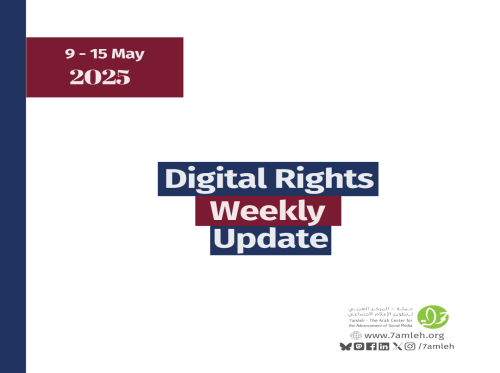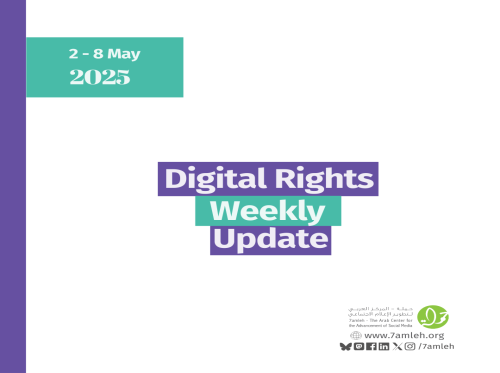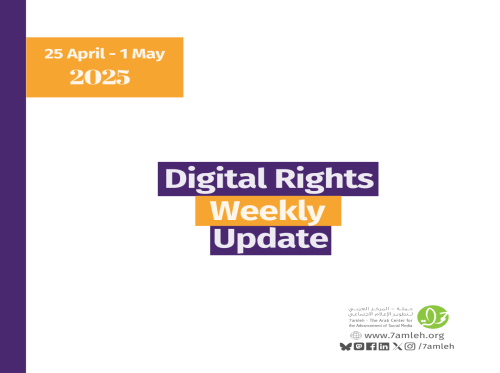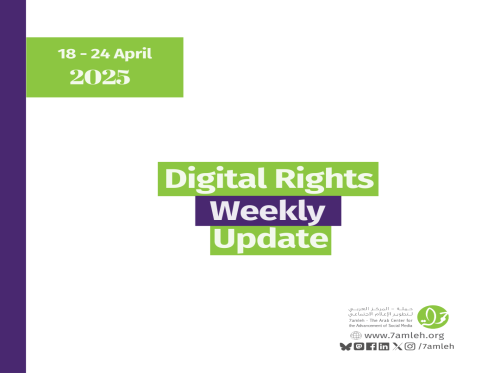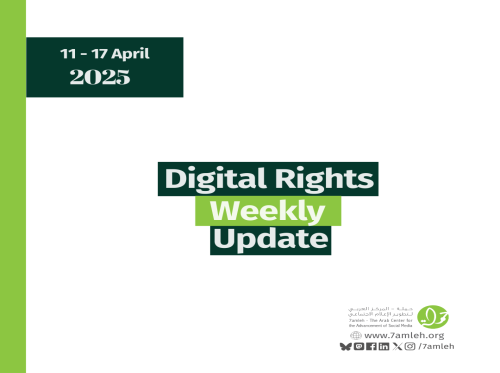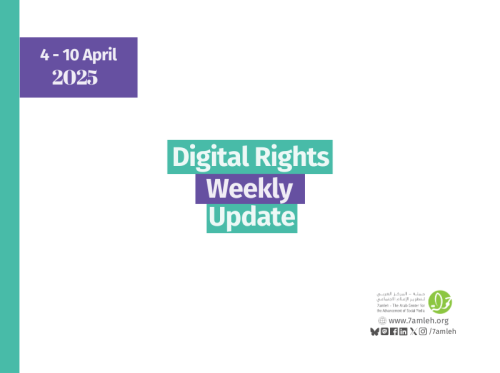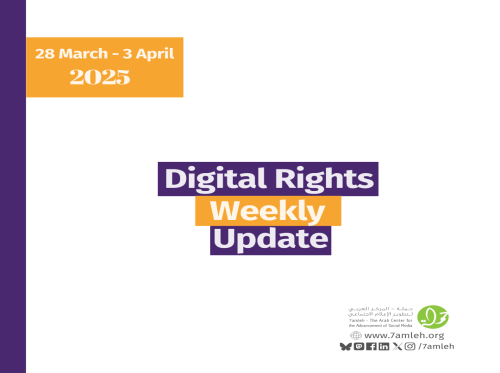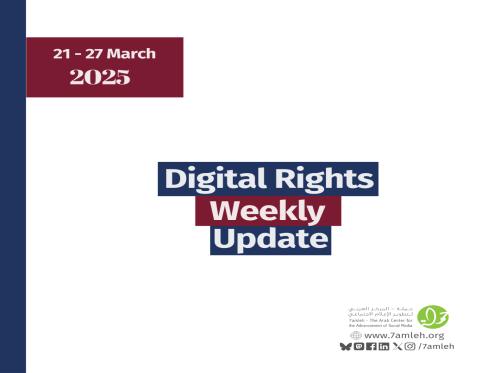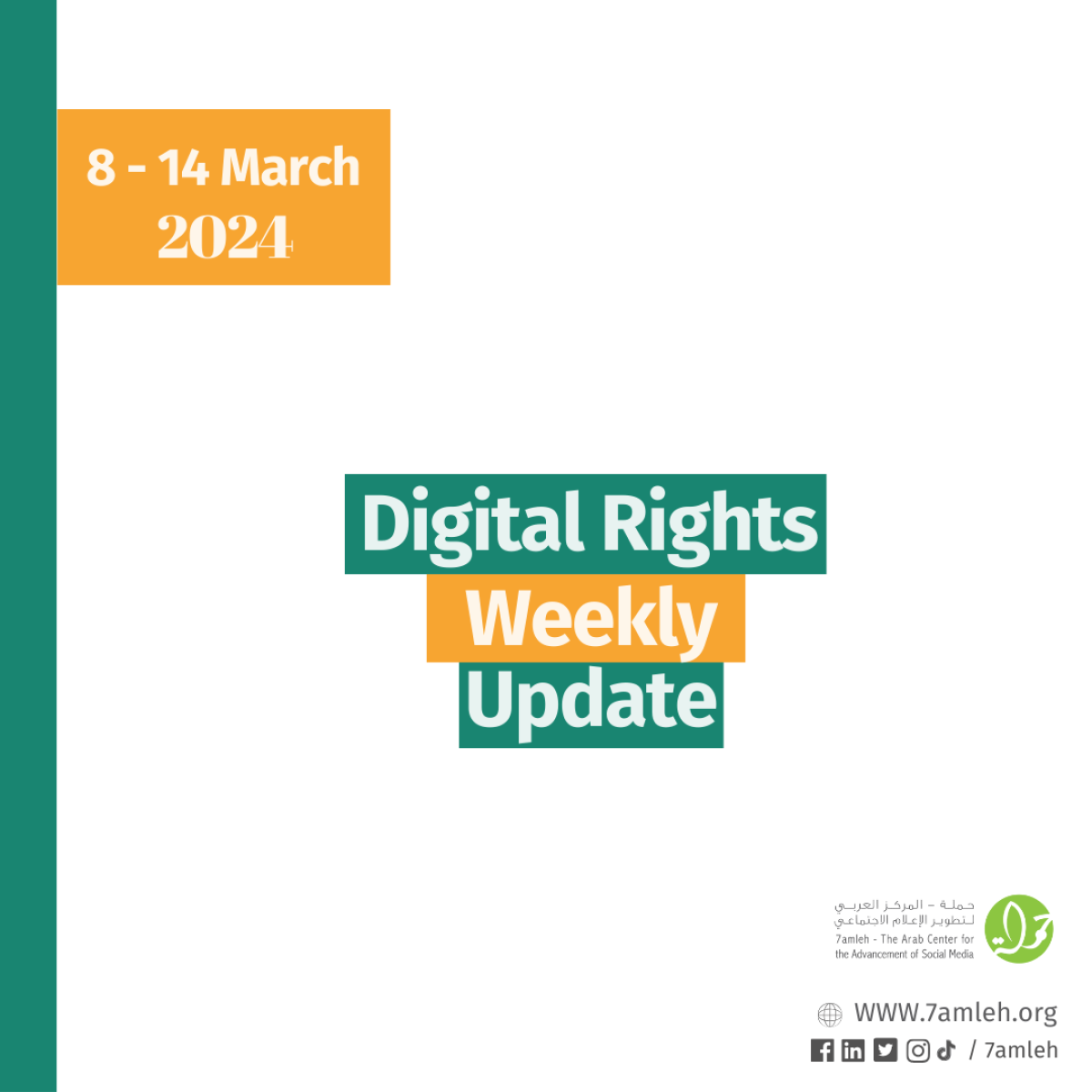
1.
Israeli teacher faces repression for speaking out against Israel's war on Gaza (English)
Anadolu Agency
An Israeli teacher said that since Israel has waged a military offensive on the Gaza Strip following an Oct. 7 cross-border attack by the Palestinian group Hamas, the Israeli society has been increasingly pushed to the far right and that there has been a growing crackdown on those speaking out against the persecution faced by Palestinians. In the aftermath of Oct. 7, Israeli law enforcement and judiciary have detained dozens of Palestinians and issued detention orders against them due to their social media posts. The pressure exerted by the Israeli police on social media is not limited to Palestinians alone. In an interview with Anadolu, Meir Baruchin, a senior history and civics teacher who was dismissed from his job due to his social media posts related to Palestinians, shared his legal struggle against the Israeli authorities and the pressures he faced.
2.
Palestinian tech firms adapt to survive as war hits business (English)
Context
Before the Israel-Hamas war, the women of the West Bank-based tech non-profit FINOMENA had grand plans. Some were honing their coding skills ahead of a hackathon in partnership with Microsoft. Others were excitedly planning to travel to a networking event in Dubai where they hoped to impress potential customers and investors. The women of the Female Innovators and Investors of MENA (FINOMENA) were surfing a tech wave sweeping across the occupied Palestinian territories, boosting the economy and offering hope to digital pioneers who were using their skills to open a virtual window onto the world. But war changed everything, said Nadiah Sabaneh, managing partner at FINOMENA, which seeks to empower women in an often male-dominated sector through mentorships and training.
3.
Access to Internet Infrastructure is Essential, in Wartime and Peacetime (English)
EFF
And in Palestine, where the Israeli government exercises near-total control over both wired internet and mobile phone infrastructure, Palestinians in Gaza have experienced repeated internet blackouts inflicted by the Israeli authorities. The latest blackout in January 2024 occurred amid a widespread crackdown by the Israeli government on digital rights—including censorship, surveillance, and arrests—and amid accusations of bias and unwarranted censorship by social media platforms. On that occasion, the internet was restored after calls from civil society and nations, including the U.S. As we’ve noted, internet shutdowns impede residents' ability to access and share resources and information, as well as the ability of residents and journalists to document and call attention to the situation on the ground—more necessary than ever given that a total of 83 journalists have been killed in the conflict so far.
4.
Google employee fired after staging pro-Palestine protest at tech event: Report (English)
Anadolu Agency
Google has fired an engineer who staged a pro-Palestinian protest during a company keynote address in New York City, according to a report published Friday. “I refuse to build technology that powers genocide, apartheid or surveillance," the ex-Google Cloud employee can be heard shouting Monday in a video that has since gone viral online. The employee staged the protest as Google Israel chief Barak Regev was addressing an industry conference. "Project Nimbus puts Palestinian community members in danger," he yelled as security escorted him out of the area. "No cloud apartheid." A Google spokesperson told the CNBC news outlet that the employee was terminated for "interfering with an official company-sponsored event.”
Related Articles
Subscribe to Our Email Alerts
And stay updated with our latest activities, news, and publications!

